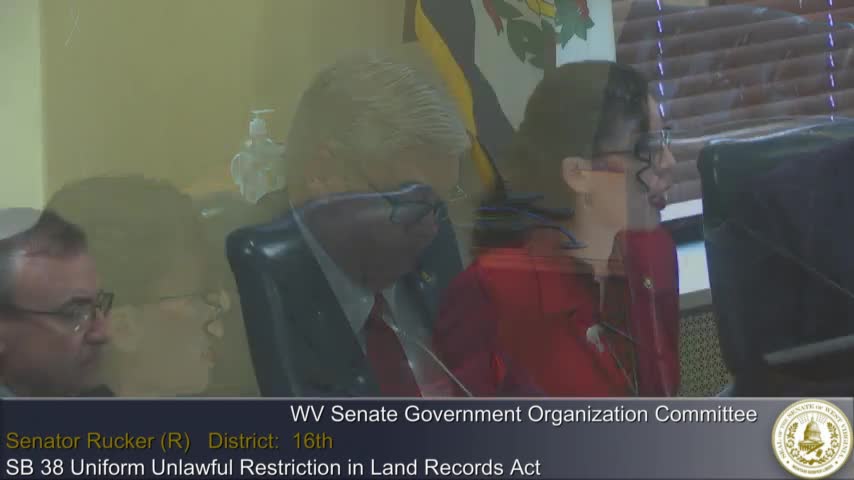Committee agrees limit on backflow inspection frequency: every 3 years for low hazard, annually for high hazard
Get AI-powered insights, summaries, and transcripts
Subscribe
Summary
The committee adopted a committee substitute for Senate Bill 269 that prevents the Department of Health from requiring backflow-prevention assemblies to be inspected more frequently than once every three years for low-hazard systems and once per year for high-hazard systems; members cited inspection cost and inspector availability concerns.
The Senate Government Organization Committee agreed to the committee substitute for Senate Bill 269 and voted to report the substitute to the full Senate with a recommendation that it pass. Committee members adopted the committee substitute and the report motion by voice votes.
The committee substitute would amend two sections of state code to provide that the Department of Health may not promulgate rules requiring backflow-prevention assemblies to be inspected more frequently than once every three years for low-hazard systems and annually for high-hazard systems. Counsel told the committee that a "high hazard" situation is one where failure of the backflow-prevention assembly would likely introduce disease organisms or harmful chemicals into a public water system and pose an unreasonable risk to health; a "low hazard" situation is one where failure might lead to aesthetic impacts such as discoloration, smell or taste but no threat to health.
Counsel explained the substitute picks up language that reached the last day of the 2024 session; the introduced version of this year’s bill was identical to the introduced version of Senate Bill 819 from 2024 but that earlier, more restrictive draft would have broadly banned promulgation of such rules. "This bill does not have a second reference, and in a slightly different form, a Senate bill on the last day of the session, having reached third reading on the special calendar," Counsel said when describing the bill’s history.
Committee members asked practical questions about applicability. Senator from Upshur asked whether the measure applied to farm wells or private connections; Counsel replied he did not believe so. Senators also raised the practical concerns that motivated the bill: the frequency and cost of required inspections and the availability of licensed inspectors. As Counsel summarized, a sponsor’s concern was that inspections can be "quite expensive for small business, frequently." Senator from Summers recalled that some property owners had been threatened with water shut-off because inspectors could not get to them; Counsel replied, "That is absolutely correct."
The committee first voted to agree to the language of the committee substitute and then voted to report the committee substitute to the full Senate with the recommendation that it do pass; both votes were adopted by voice vote. The committee substitute adopts the version of the bill that had been negotiated before the last day of the previous session and narrows inspection-frequency requirements compared with the originally introduced version.
No fiscal note or amendment changing funding or enforcement mechanisms was adopted during the meeting. The bill does not currently have a second reference to another committee, per the committee record.
